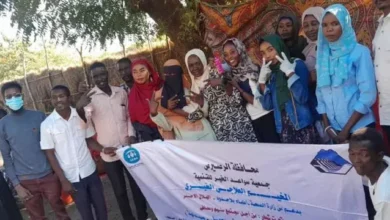Blue Economy in Sudan Between Efficiency and Sustainability – Something for the Homeland – ✍️ Mr. Salah Ghariba

The world is facing increasing economic and environmental challenges, prompting many countries to seek new horizons for development. The blue economy is one of the most important prospects, as it represents the sustainable exploitation of marine resources to achieve economic and social growth and preserve the environment. In Sudan, which has a vast seafront and wide rivers, the blue economy is of particular importance as a driver for comprehensive and sustainable development.
The blue economy includes a wide range of economic activities related to oceans, seas and inland water resources, such as fisheries, aquaculture, shipping, maritime tourism, extraction of renewable energy from oceans and seas and marine biotechnology, among others.
The strategic importance of the blue economy lies in food security, and the blue economy represents an important source of food security by providing fish and marine products, in addition to economic development, as the blue economy contributes to diversifying sources of income and increasing the gross national product, in addition to providing new employment opportunities for young people, especially in coastal areas, encourages environmentally friendly practices to preserve fishery wealth and marine biodiversity, and can contribute to adaptation to the effects of climate change by developing early warning systems, protecting coastal areas. rural areas and developing salt-resistant agriculture.
The huge potential of the blue economy in Sudan is represented by natural resources. Sudan is characterized by the presence of large areas of fresh and salt water, which contain a diverse fishery wealth and other natural resources, in addition to its geographical location. located on the Red Sea, which gives it a strategic location for trade and maritime transport and a growing global demand. The world is witnessing a growing demand for marine products, which offers great opportunities for Sudan.
Challenges facing the development of the blue economy in Sudan: Lack of investment. The sector suffers from a lack of investment in infrastructure and technology. Industrial and agricultural pollution affects water quality and negatively affects fisheries wealth. The sector suffers from a lack of skills in marine resource management: climate change affects sea level rise and ocean acidification, which threatens marine ecosystems.
The future vision of the blue economy in Sudan is sustainability. The main objective should be to achieve sustainable development through the rational use of marine resources and preservation of the environment, with good governance, by establishing a clear legal and regulatory framework to regulate economic activities in the maritime domain, and the partnership between the government should be strengthened. The private sector and civil society should develop the sector, while investing in research and development to develop new technologies in the field of fish farming, extraction of renewable energy, water treatment and educating local communities on the importance of preserving the marine environment and participating in sustainable development efforts.
The blue economy in Sudan represents a historic opportunity to achieve comprehensive and sustainable development. Through optimal exploitation of marine resources, Sudan can ensure food security, provide employment opportunities, preserve the environment and improve its regional and international position. This requires concerted efforts by the government, the private sector and civil society to develop a comprehensive strategy to develop the blue economy, invest in infrastructure and technology, develop skills and strengthen regional and international cooperation.






